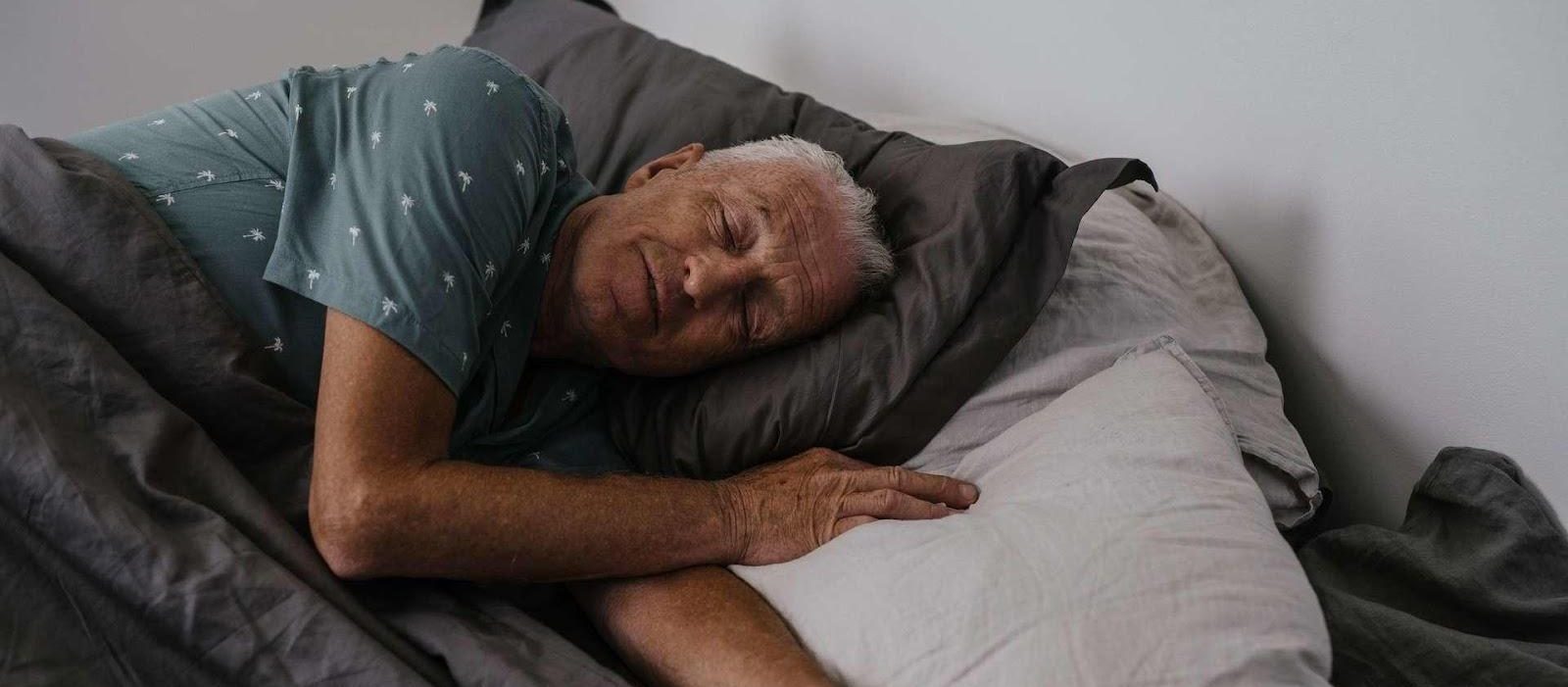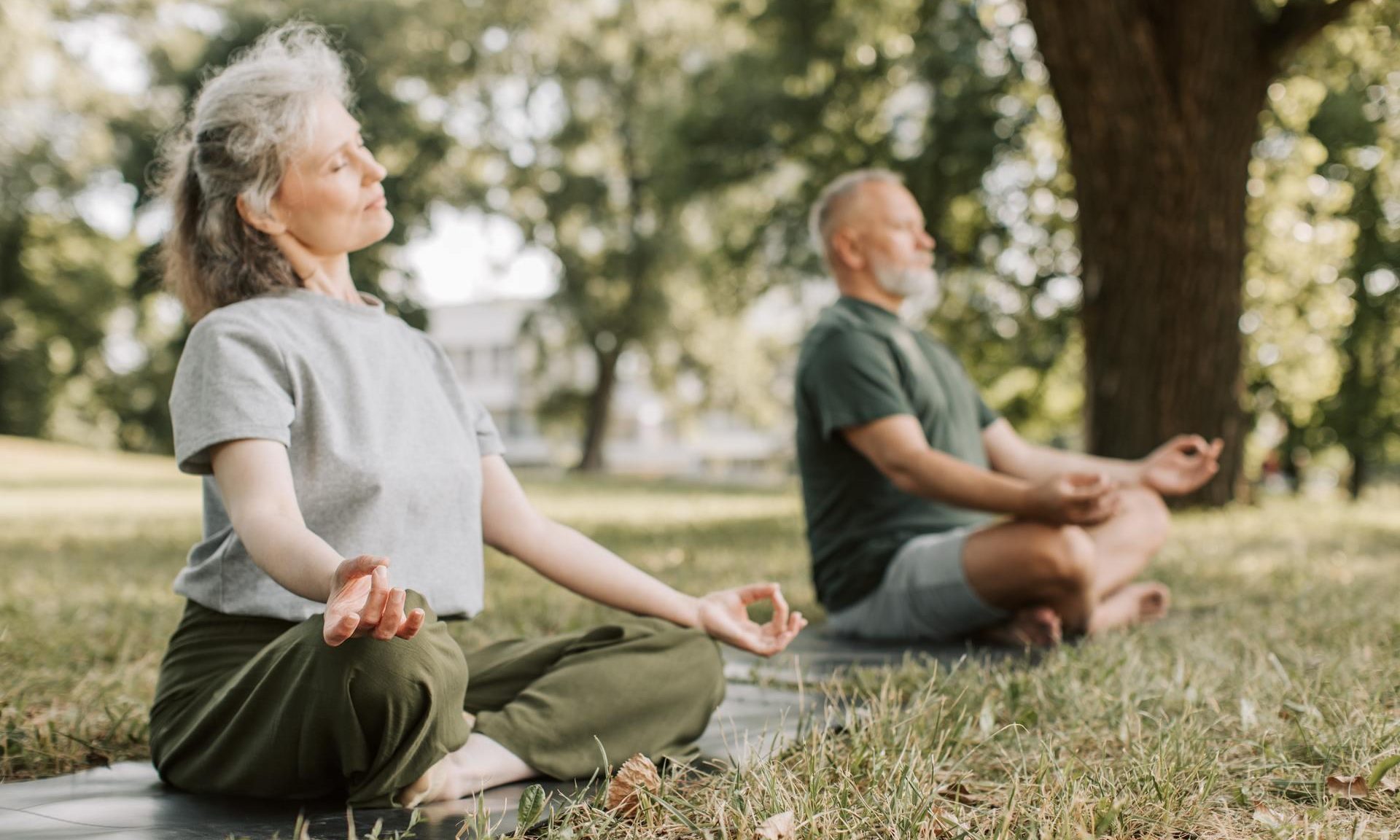The Importance of Sleep for Seniors

A blissful night’s sleep is one of life’s purest pleasures. There’s nothing better than waking up feeling refreshed after a long, uninterrupted snooze. However, your sleep patterns can change as you age, leading to new challenges. As a result, it’s essential to understand the importance of sleep for seniors and practice healthy habits.
Sleep has many mental and physical health benefits for older adults. But many factors can influence sleep quality, such as sleep disorders and lifestyle choices. Discover everything you need to know about the value of sleep for seniors and tips to get a better night’s rest.
Understanding Sleep
On the surface, sleeping may seem like the simplest thing in the world. After all, you only need to close your eyes and count sheep until you fall asleep. However, sleep is a complex process that involves five distinct stages, including:
- Wakefulness: You begin to feel drowsy, and your brain waves change as you approach sleep.
- Light Sleep: This stage occurs when you fall asleep and lasts only one to five minutes.
- Deeper Sleep: Your heart rate slows, and your body temperature drops as you fall into a sounder sleep. Neurons called sleep spindles fire during this phase and aid memory consolidation.
- Deepest Non-Rapid Eye Movement (NREM) Sleep: In this phase, your body strengthens the immune system and repairs bone, muscle, and tissues.
- REM: Your brain becomes more active as you dream, and your eyes move rapidly. Also, your muscles may move irregularly. Most people have multiple REM cycles during a single sleep session. The first REM period only lasts 10 minutes, but each cycle gets progressively longer.
According to the National Institute on Aging, older adults should get seven to nine hours of sleep a night. Seniors who don’t get enough sleep or experience frequent sleep disruptions don’t stay in all five stages for the appropriate amount of time. As a result, they may not feel properly rested or experience the full benefits of sleep.
For example, researchers have discovered that a lack of early-night slow-wave sleep and REM sleep can impair learning and memory consolidation. Additionally, poor sleep caused by sleep apnea and other disorders causes the body to produce more amyloid, a protein linked to Alzheimer’s disease. Getting adequate sleep promotes healthy aging and cognitive function.
Common Sleep Disorders in Seniors
Many seniors have sleep disorders that make it hard to get enough sleep. These conditions can have long-term health consequences if left untreated.
Some of the most common sleep disorders in seniors include:
- Insomnia: This disorder makes it difficult to fall or stay asleep. People with insomnia experience sleep issues at least three nights a week for three months or longer. Experts estimate that up to 75% of older adults suffer from this sleep condition. Symptoms include fatigue and waking up early in the morning.
- Sleep Apnea: This condition occurs when the upper airway gets blocked repeatedly during sleep, causing snoring and abrupt waking. One study found that people 65 or older are three times more likely to have sleep apnea than younger adults.
- Restless Leg Syndrome: This neurological disorder causes uncomfortable sensations in the lower limbs, leading to an uncontrollable urge to move the legs. Symptoms typically get worse at night.
- REM Sleep Behavior Disorder: This condition causes sleepers to act out their dreams, which could lead to injury. An estimated 5% to 13% of adults aged 60 to 99 develop this disorder.
- Circadian Rhythm Disorders: These conditions occur when your natural sleep patterns get out of sync, making it difficult to regulate your sleep schedule.
Consult your primary care doctor or a sleep specialist if you suspect you have a sleep condition.
Health Benefits of Sleep
Sleep has a significant impact on seniors’ mental and physical well-being. Getting enough quality sleep enables you to enjoy a longer, healthier, and more active life.
Physical Benefits of Sleep for Seniors
Sleep can help you stay healthy and fit, so you can keep chasing your grandkids around and enjoying your favorite activities during your retirement. Physical benefits include:
- Improved immune system: As you sleep, your body produces cytokines to help regulate the sleep cycles. These cytokines also strengthen your immune system, protecting your body from inflammation and infections.
- Reduced risk of chronic diseases: Getting adequate sleep decreases the likelihood of developing several chronic diseases, such as cardiovascular disease, obesity, and type 2 diabetes.
- Improved heart health: Sleep promotes cardiovascular health and helps decrease blood pressure. Chronic sleep deprivation and disorders like sleep apnea can increase your risk of heart attack, high blood pressure, and stroke.
- Fall prevention: Older adults who get adequate sleep are less likely to fall. An estimated 29% of Americans aged 65 or older fall at least once a year, which can lead to serious injuries like fractures and traumatic brain injuries.
- Speedier recovery from illness and injury: Research shows that seniors who get sufficient sleep are more likely to recover after being discharged from a short-term hospital stay. This benefit reduces the risk of future hospitalizations.
Mental Benefits of Sleep for Seniors
Sleep also has many positive effects on cognitive and mental health, such as:
- Reduced risk of depression and anxiety: A recent study found that older adults who get poor sleep are more likely to have symptoms of depression. Additionally, the researchers discovered that depression can lead to less sleep, causing a harmful cycle. Studies have also linked insufficient sleep to anxiety and frequent mental distress. Getting enough sleep can protect your mental and emotional health.
- Improved cognitive function and memory: Research has found that sleep can improve older adults’ ability to remember facts, details, and contextual information. Another study suggests that getting adequate sleep during your 50s and 60s can decrease your risk of developing dementia as you age.
- Better mood and emotional well-being: Evidence shows that adequate sleep can boost your mood and help you regulate your emotions. As a result, you feel happier and more energized.
Factors Affecting Sleep Quality
Numerous factors can impact the length and quality of your sleep. Many seniors have health conditions that directly affect their sleep. You may have difficulty falling asleep if you have a painful chronic illness, such as arthritis or back pain. Getting enough sleep can also be challenging if you need to urinate frequently throughout the night.
Additionally, many medications disrupt sleep. According to the Food and Drug Administration, drugs used to treat insomnia — including Ambien and Lunesta — can lead to potentially dangerous behaviors, such as sleep driving and sleepwalking. Antidepressants also decrease the time you spend in REM sleep, raising the risk of mental health disorders.
Environmental and lifestyle factors can also make it hard to get enough rest. For example, you may wake up frequently if your neighbor’s dog barks all night or your bedroom isn’t the right temperature. Staying up late to scroll through your phone and sharing your bed with a partner or pets can also contribute to a poor sleep environment.
And don’t underestimate the impact of stress and anxiety. Many seniors find it difficult to fall asleep if they’re worried about their family, health, or finances.
Tips for Improving Sleep Quality
If you want to enjoy longer and more restful sleep, you can start by making small changes to your daily routine.
Practicing excellent sleep hygiene is one way to get a better night’s rest. Stick to a consistent bedtime routine, even during the weekends and holidays. Also, consider making your bedroom an electronics-free zone to avoid the temptation to stay up late browsing social media or watching television. And it’s helpful to stop drinking alcohol and caffeine a few hours before you sleep.
Relaxation techniques can also improve your sleep. For example, you can concentrate on slowing your breathing while lying in bed to clear your mind. Or work on progressively relaxing different muscle groups around your body for two seconds at a time. Meditation, Tai chi, and yoga classes also teach relaxation strategies.
Healthy lifestyle changes make a big difference in sleep quality. Avoid naps during the day to ensure you’re tired at bedtime, and get in the habit of journaling to channel your worries into a productive outlet. Regular physical activity like swimming and walking can also lead to better sleep.
Resources for Seniors with Sleep Issues
Maybe you’ve already tried to improve your sleep, but small steps like cutting out coffee and meditating haven’t helped. You may benefit from external support to get back on the right track.
Somnologists are doctors who specialize in diagnosing, treating, and preventing sleep disorders. You can schedule an appointment with a somnologist to get evaluated and treated for conditions like insomnia, restless leg syndrome, and sleep apnea. A neurologist can also treat neurological sleep disorders, such as circadian rhythm disorders and narcolepsy.
Sleep technology may also enhance your sleep quality. Devices like smart watches make it easy to track your sleep and identify patterns, such as when you wake up during the night. Also, smart beds automatically adjust their firmness and support in response to your movements, so they can help you stay comfortable all night.
Additionally, you could get more sleep by using mobile applications. Guided meditation apps help you relax and banish your worries before you drift off to sleep. Other apps play ambient sounds or white noise to block out environmental distractions.
Prioritize Sleep for Healthy Aging
Sleep plays a critical role in seniors’ longevity and physical and mental well-being. Simple habits can help you get enough high-quality rest. As a result, you’ll have the energy you need to enjoy your life to the fullest and keep doing the things you care about most, like spending time on your hobbies and traveling.
Contact Senior Resource Group to learn how our retirement communities can help you stay well-rested and healthy. And check out our Healthy Aging for Seniors guide for more practical tips.




